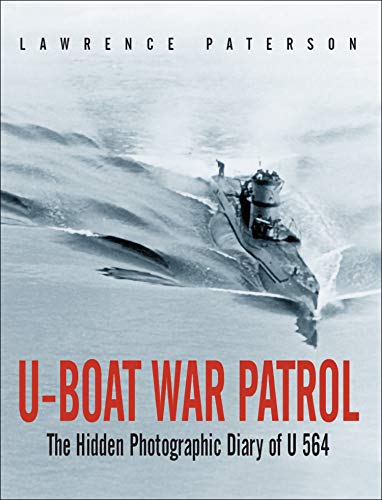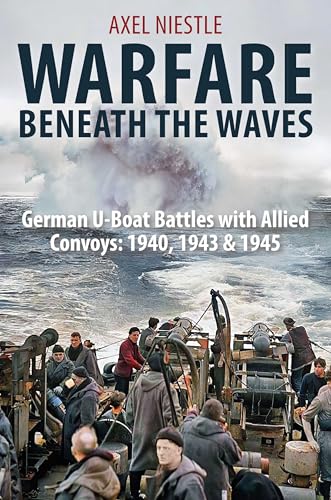
U-108 at War
by Alistair Smith
Popularity
4.28 / 5
* A book's popularity is determined by how it compares to all other books on this website.
Where to buy?
Buy from Amazon* If you buy this book through the link above, we may receive a small commission at no extra cost to you.
U-108 at War by Alistair Smith
Details
War:
World War II
Perspective:
Submarines
Military Unit:
Kriegsmarine
Biography:
No
Region:
Europe
Page Count:
148
Published Date:
2012
ISBN13:
9781783038701
Description
Brief Summary
U-108 at War by Alistair Smith offers readers a rare glimpse into the life aboard a German U-boat during World War II. Utilizing an unpublished album of photographs taken by a crew member of U-108, the book provides a poignant visual narrative of the crew's day-to-day existence. From the harsh realities of combat missions in the Atlantic, including the sinking of Allied ships and the subsequent rescue of their crews, to the cramped and difficult living conditions below decks, this book offers an intimate look into the human side of the war. The collection is particularly notable for its candid shots that reveal both the hardships and the camaraderie among the crew members.
Main Themes and Topics
The primary theme of U-108 at War is the exploration of life inside a World War II German U-boat. The book successfully captures the gritty reality of the Atlantic missions, focusing on the dangerous and highly intense environment that the crew had to navigate. It delves into aspects of survival, resilience, and camaraderie among the crew members amidst the turbulent and unforgiving conditions at sea. The photos serve as a historical document that visually underscores themes of warfare, the unpredictability of naval combat, and the human aspect of military service during times of conflict.
Writing Style and Tone
Alistair Smith’s writing complements the photographic content with clarity and precision. The tone is factual and respectful, reflecting the harsh realities documented in the photographs. Smith's narrative provides context and detailed explanations of the U-boat missions, thereby enhancing the reader's understanding of the visual elements. His straightforward style ensures that the emphasis remains on the vivid imagery while providing sufficient background to appreciate the significance of each captured moment.
Criticism
Some readers may find that the book's reliance on photographic documentation could limit the depth of traditional narrative storytelling. While the images are compelling, those looking for a more text-driven account of U-boat operations might find the visual-first approach less engaging. Additionally, as the book relies on a single photo album for its illustrations, there's a possibility that other perspectives or broader operational details are underrepresented. However, these aspects are widely recognized as inherent to the nature of photographic historical records.









